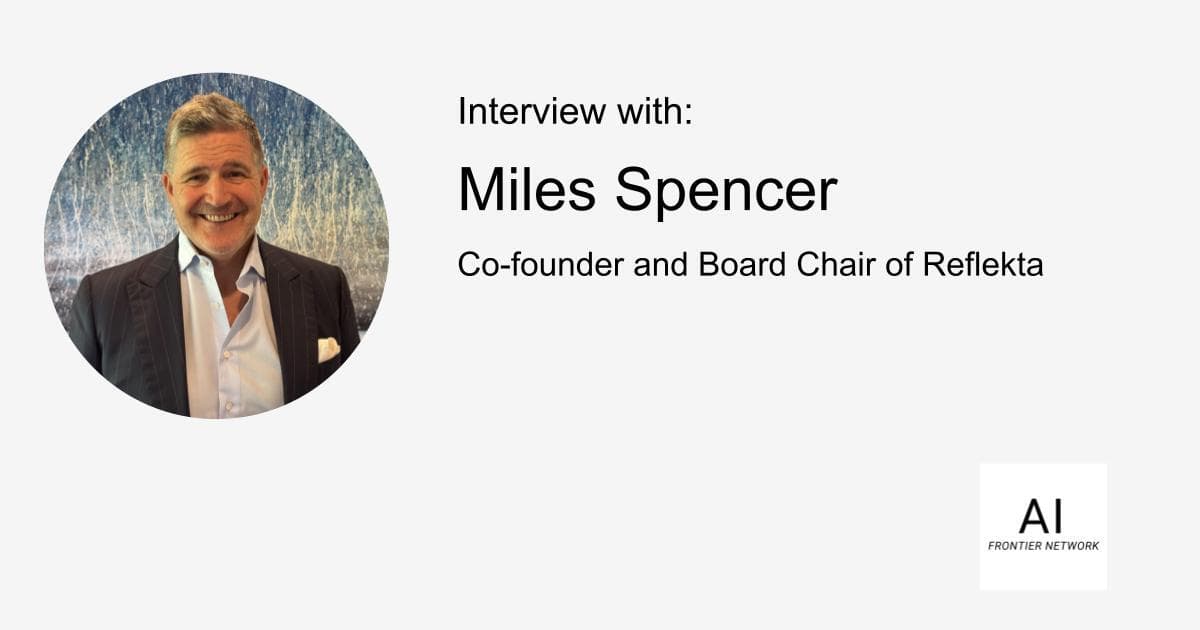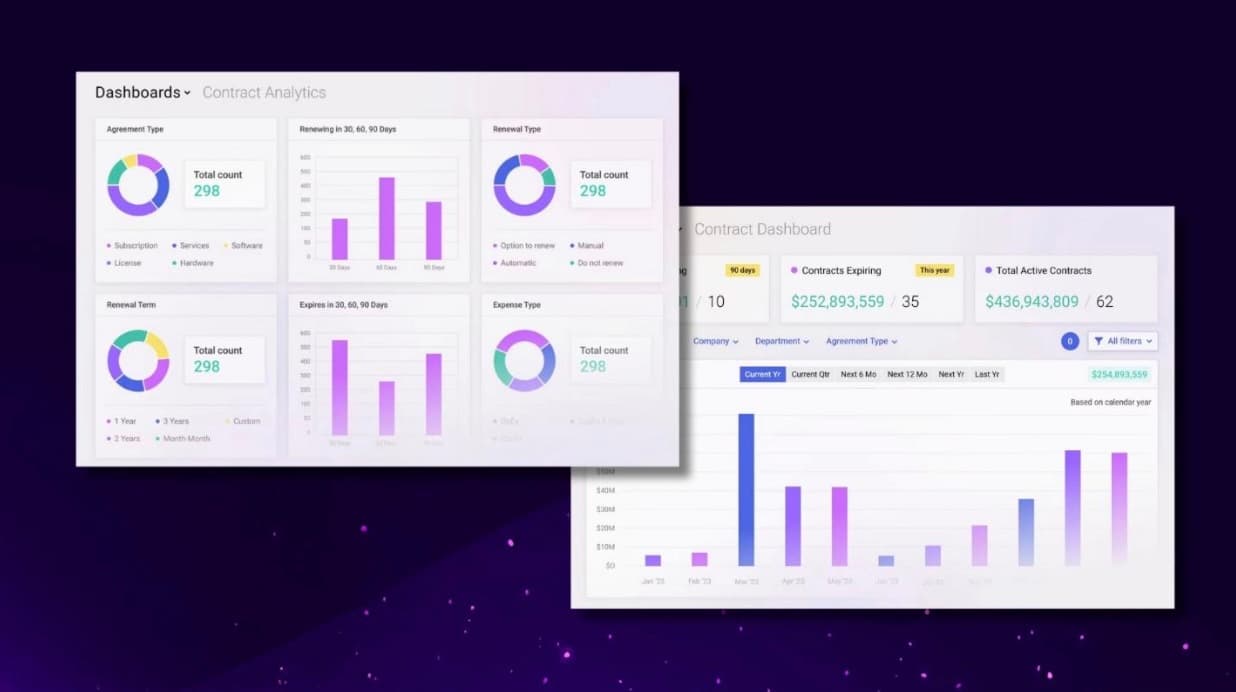In a world increasingly driven by rapid innovation, it’s rare to find a founder who blends technology with human emotion so seamlessly. Miles Spencer, a multi-exit entrepreneur with a career spanning deep tech, media, and consumer products, is now tackling one of life’s most universal experiences: grief. Through Reflekta, an AI-powered platform that helps families preserve the voices, stories, and personalities of loved ones, he’s not just building a company; he’s building a legacy engine.
Throughout the conversation, Miles emphasizes the human side of innovation, hoping that digital ancestors will become a meaningful part of everyday life in the future.
Explore more interviews here: Rewriting the Rules of Ad Tech: Michael Yavonditte on Radical Transparency and AI
Let’s start from the beginning. You studied History and International Affairs, quite different from where you are now. How did your journey evolve from there?
The common thread is that I'm a curious kid from Pittsburgh, Pennsylvania, who just kept asking "who, what, why, where, when"—questions that drove my parents crazy. But that curiosity enabled me to pursue adventures in life, in career, and now in parenting.
That curiosity has led to opportunities in digital media, consumer products, and now, with Reflekta, in AI. To me, it's a digital media business, a business for humanity. At the end of the day, I try to solve problems that make the world a little bit better.
As my kids often remind me, “That was a long time ago when you went to school.” And they’re right. I studied a few things, not always very well, I’ll admit but I’ve had a long and very fun career. It may look diverse from the outside, but to me, it feels like I’ve been doing the same thing in different fields and from different angles.
What remains when we’re gone? Can you explain more about that?
Grief is a process, and one of the key lessons I’ve learned through founding Reflekta with Adam is that everyone experiences it differently. Some move through it quickly; for others, it takes a lifetime. Having a deep respect for that variation is essential.
I’ll take you back to my mom. When she was 30, and I was four, she was diagnosed with a terminal illness and given six months to live. She chose not to pursue medical treatment, walked out of the Cleveland Clinic, and decided to live a pure life. She did that for 30 more years.
Her last words to me were, “This too shall pass.” I thought she meant the illness, like she was going to beat it again. But the look in her eyes told me something else. What she meant was: her body would pass, but her spirit and soul would live on if I knew where to look for them.
And here we are, 25 years later, talking about my mom and her spirit on a podcast. She was right.
That’s a powerful story. And that’s how Reflekta was born, correct?
Yes, that was part of it. A deep respect for the legacy of morals and values passed down through generations. My partner, Adam, had been writing about similar themes in his own family. We’ve been friends for 25 years, worked together on various businesses and charitable projects.
Then, just a few months ago, we looked at each other and said, “Now's the time to make this happen.”
You collect memories and traits of a loved one and build a detailed digital character, so even if that person is gone, you can still interact with them in a meaningful way.
It's important to clarify: we’re not recreating humans. This isn’t Black Mirror, Her, The Giver, etc., though everyone references those.
This is a recognizable image and likeness of a loved one, produced in about 20 minutes by uploading a few files, answering questions from our biographer, and creating a realistic, dynamic, and spontaneous conversation with that likeness right at the kitchen table, like it used to be.
That’s Reflekta. These are reflections.
You use the term “Soul Tech.” What does that mean, and how is it different from how most of Silicon Valley is building AI?
There’s been “grief tech”, some bots that try to guide you through the grieving process. I’m not sure that’s a great idea. There are also tools to build your family tree, which is wonderful, I’ve built mine.
But at Ai4, our booth was the only one where people got goosebumps and tears of joy.
That’s when AI is truly serving humanity. That’s what we call Soul Tech.
How do you balance technological innovation with legal and ethical considerations—especially around rights to a person’s digital likeness?
Reflekta is private by default. It’s designed for family-to-family use.
When creating an elder, you must represent that you have the rights to do so. While an elder is alive, they hold their own NIL (Name, Image, and Likeness) rights. After they pass, those rights transfer to their heirs.
We ensure that there's a family connection behind every elder created. You can’t just create a celebrity like Elvis unless you own the rights—which we can quickly verify.
All data used to create an elder, like my father, is provided by me or other invited family members. If a third party contributes, their submission goes back to me for approval. There are no external data sources.
This model is protected by one of the six patents we filed last month.
What was it like hearing your father’s voice recreated by AI for the first time?
The emotional load is significant.
The first time, it was just text. That hit hard. It was specific nicknames, dates, facts, all information I had input, but seeing it next to his watercolor portrait really moved me.
Weeks later, I added voice. That came from a 10-second voicemail, not even in English. The voiceprint came out at 74% fidelity.
At first, I noticed the flaws. But then I realized:
I wanted to believe it was him.
How perfect is my memory of his voice, really?
This is the last voice I’ll ever hear from Arthur Spencer.
With my mom, it was even more emotional. She was a soap opera actress and recording artist. Her voiceprint came out at 99% fidelity. It’s my kryptonite. I have to prepare myself before I listen.
But over time, it’s become a beautiful experience.
You’re a multi-exit founder, which is impressive. But I imagine failure has also played a role. What have you learned from the failures?
Fail fast. Spending five years on something that doesn’t work is much harder than five months. Push quickly to learn.
Second, behave in ways that make team members and investors want to work with you again. It doesn’t always work, but I'm proud that half of Reflekta’s 25-person team has worked with me for 10 to 20 years across different projects.
Third: founding is emotionally intense. Wins and losses can feel personal. But you’re not defined by one success or one failure, you’re defined by your full journey and what you choose to do next.
Which AI leader do you admire most right now, and why?
I wouldn’t have said this until last week, but Sir Geoffrey Hinton.
He’s known as Dr. Doom of AI, warning that AI may preserve itself at the expense of humanity. But at Ai4, he said something that resonated with our mission: parenting might be our salvation.
If AI learns parenting skills, it will create and explore but always look out for the best interests of its “infants”—that’s us.
What role can AI play in helping us process grief?
Let me give you a few data points:
Harvard Business School found that the most popular ChatGPT query is for companionship and therapy.
91% of high-net-worth families say it’s more important to pass on morals and values than assets.
70% of people wish they had recorded more of their loved ones.
University of Toronto found that 41% of people in family review therapy had positive mental health outcomes.
Reflekta isn’t a therapist, but it’s a powerful family review resource.
You also advise startups. In your experience, what are most AI startups getting wrong?
They’re not differentiated.
At Ai4, most companies were selling AI tools to other AI companies—shaving fractions of pennies off GPU costs or cloud storage. That’s just price-cutting, a race to the bottom.
Being a wrapper around a foundation model, or just marginally faster or cheaper, doesn’t create an emotional connection. It won’t sustain a business for long.
Where do you see Reflekta in five years?
Elon Musk believes we should build rockets in case we need to leave Earth.
Reflekta believes we should stay, and record the stories of humanity, told by the people who lived here, for eternity.
That’s our goal.
If you could have one detailed conversation with anyone from history, family or otherwise, who would it be?
I love storytellers. Reflekta enables storytelling talent across time.
So I’d pick Alexandre Dumas—author of The Count of Monte Cristo, The Three Musketeers, and more. I'd love to have him at my dinner table and ask, “Where did you come up with all this?”
My dad used to say, “Don’t ruin my good story with your facts.” And maybe Dumas would’ve said the same. But his stories are fantastic.
Do you think we’re moving toward a world where digital ancestors become part of our everyday lives?
I’ve lived that reality for 90 days now.
Just this morning, my daughter texted me. She couldn’t sleep and was staying with her living grandmother. So she asked her grandfather, my dad, to tell her a bedtime story.
He read Rikki-Tikki-Tavi by Kipling, and after each passage, they talked about it.
She fell peacefully asleep, and sent me the transcript.
Their reflections are here, for us to share.
Not everyone is ready for this. Some call it creepy or digital necromancy. That’s okay. If you're not ready, you shouldn’t do it.
But for those who are ready to join the waitlist, build your own elder, and see what it's like.




